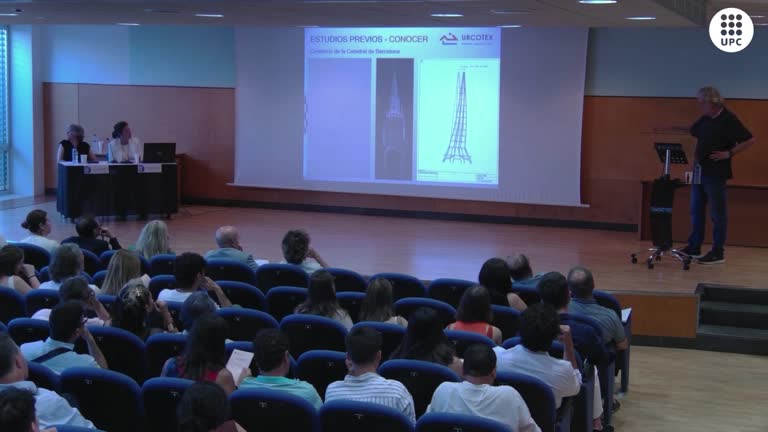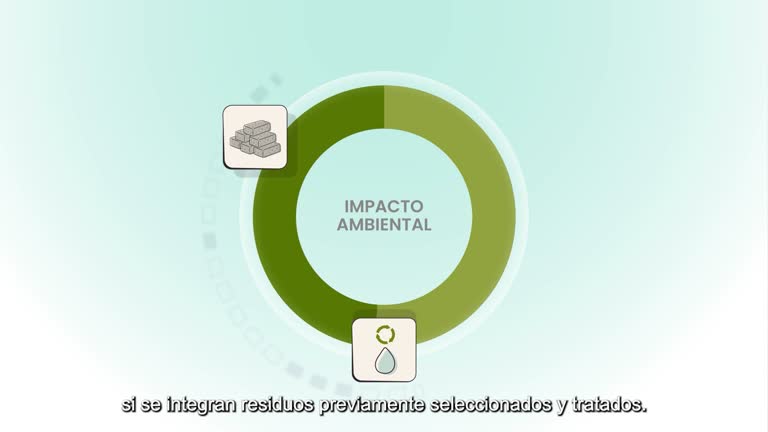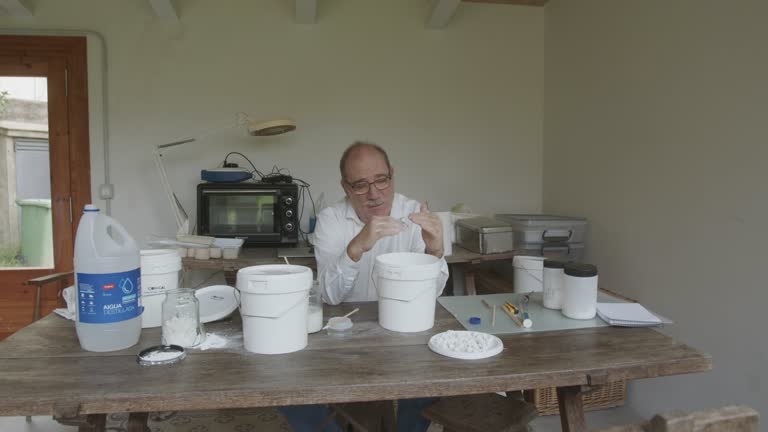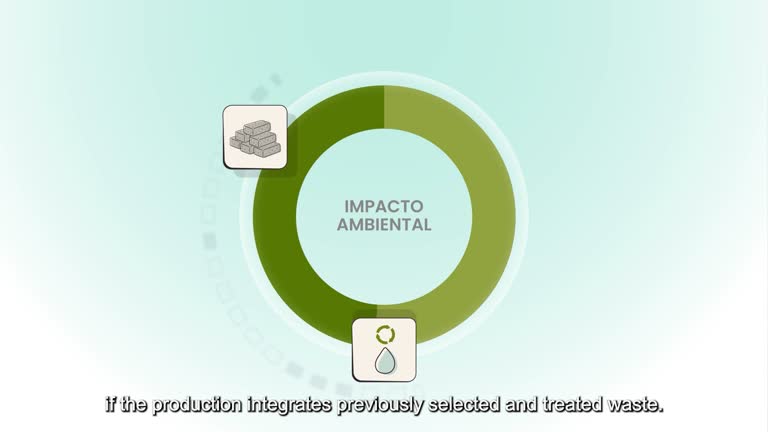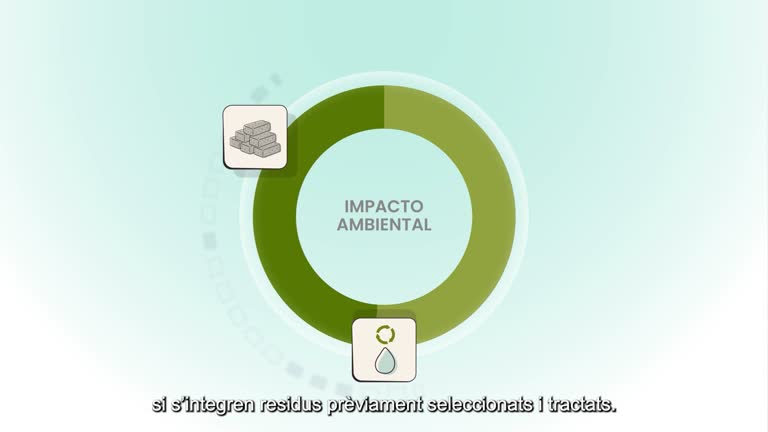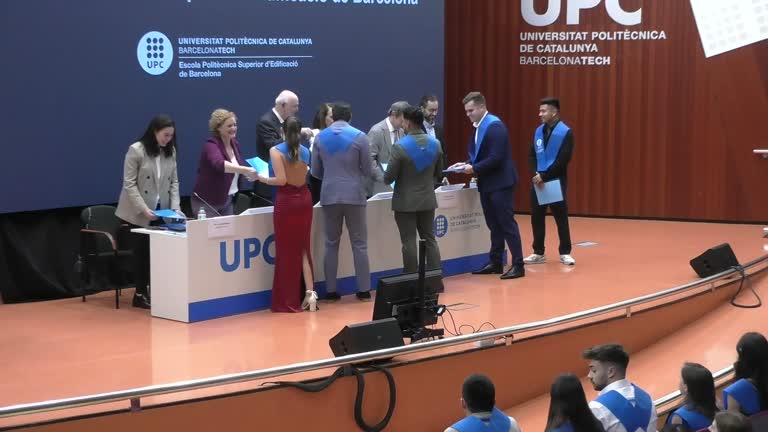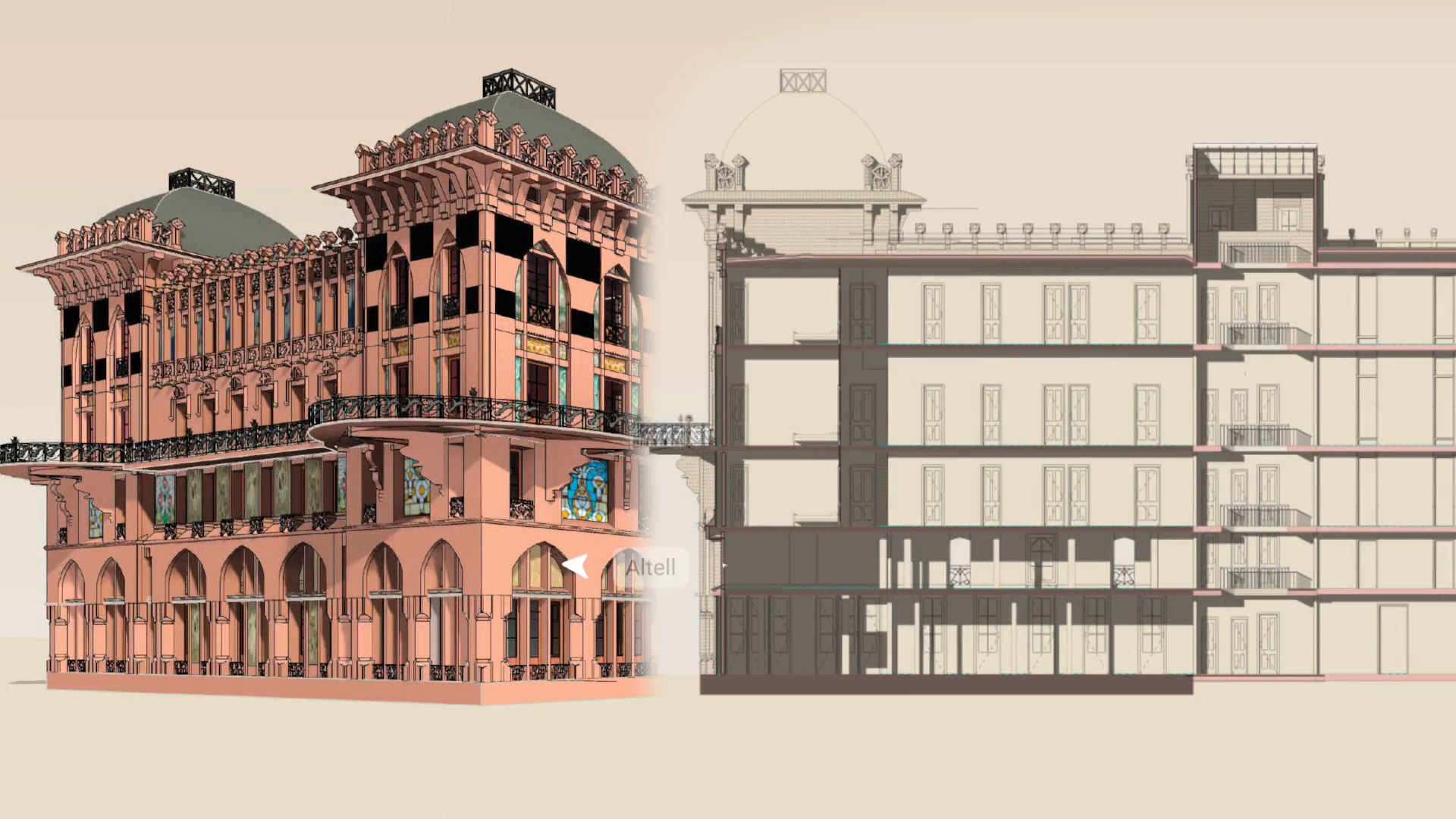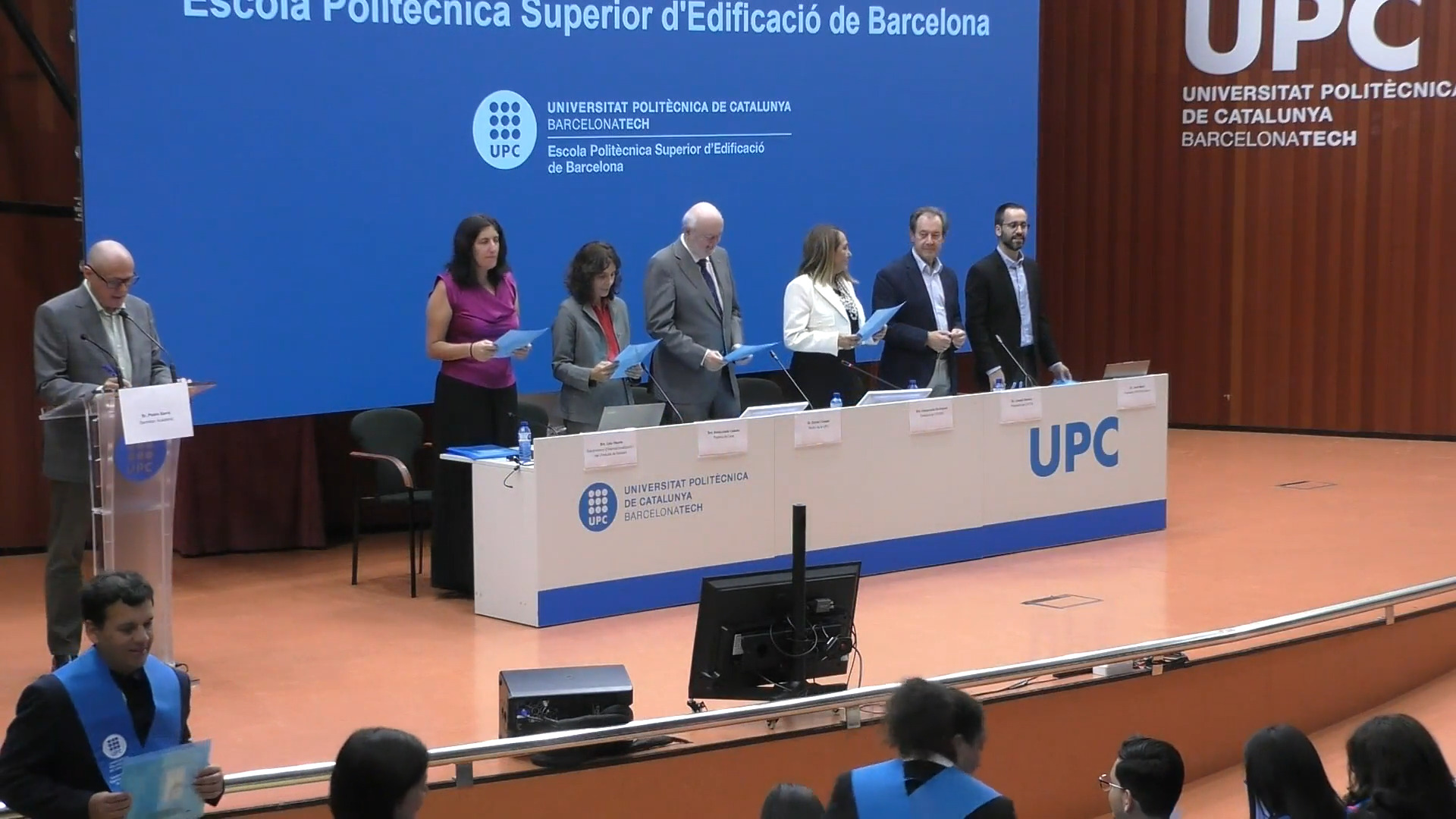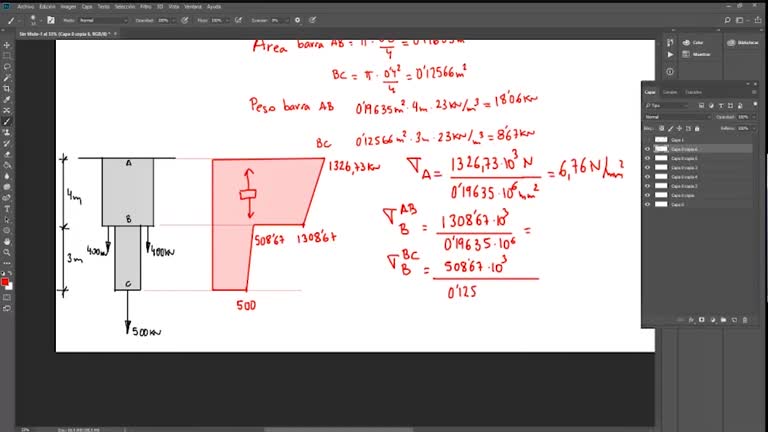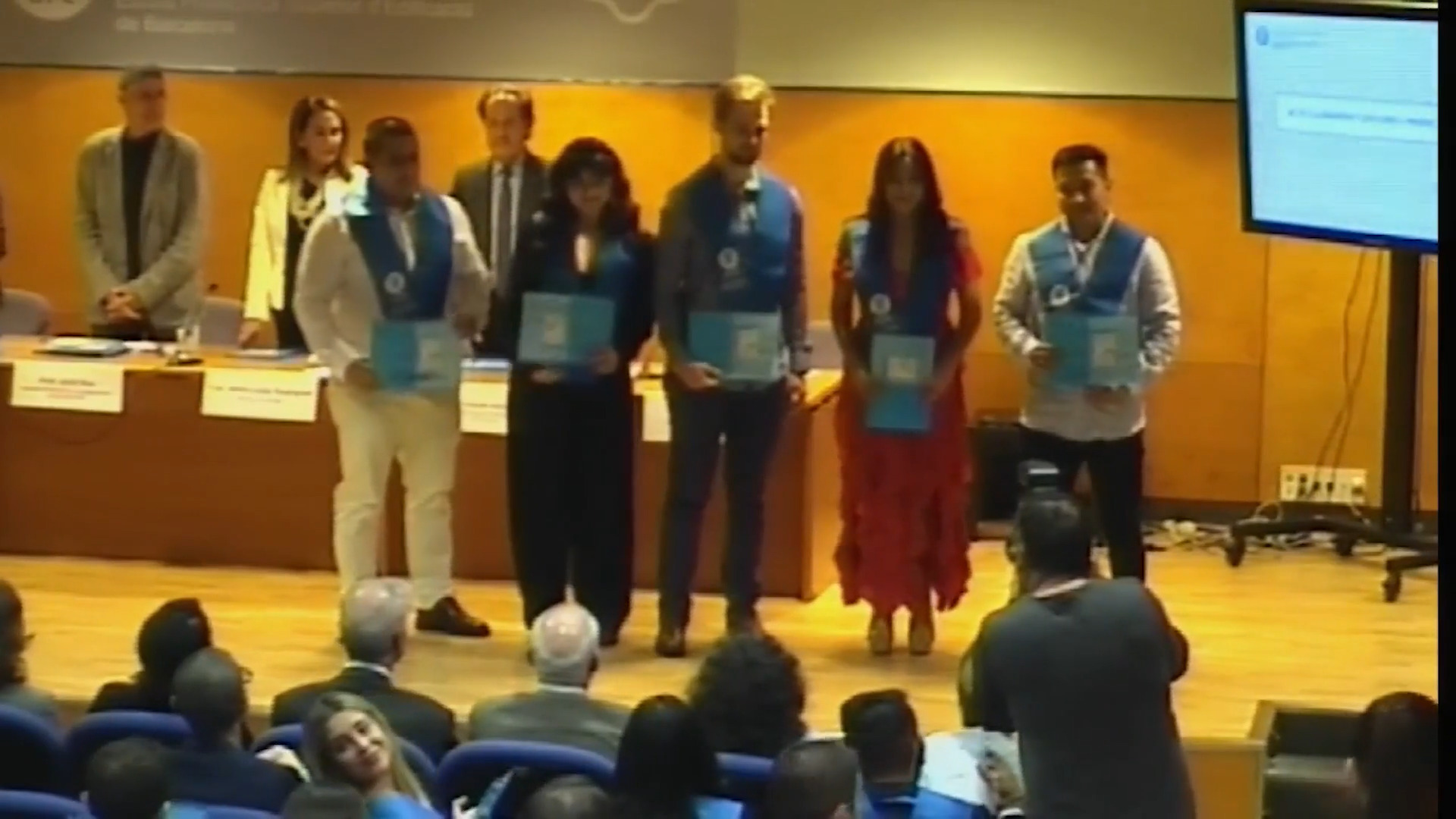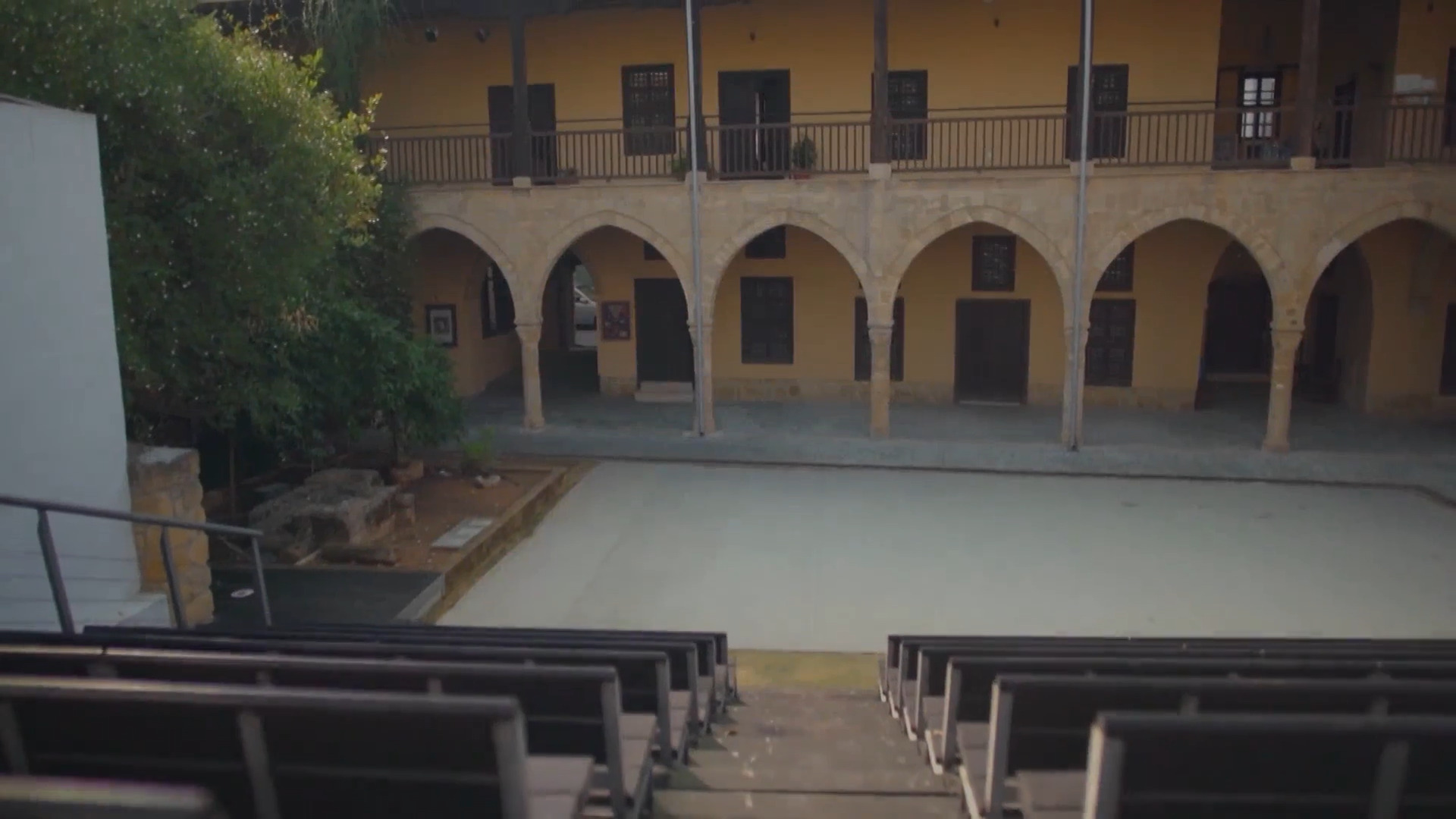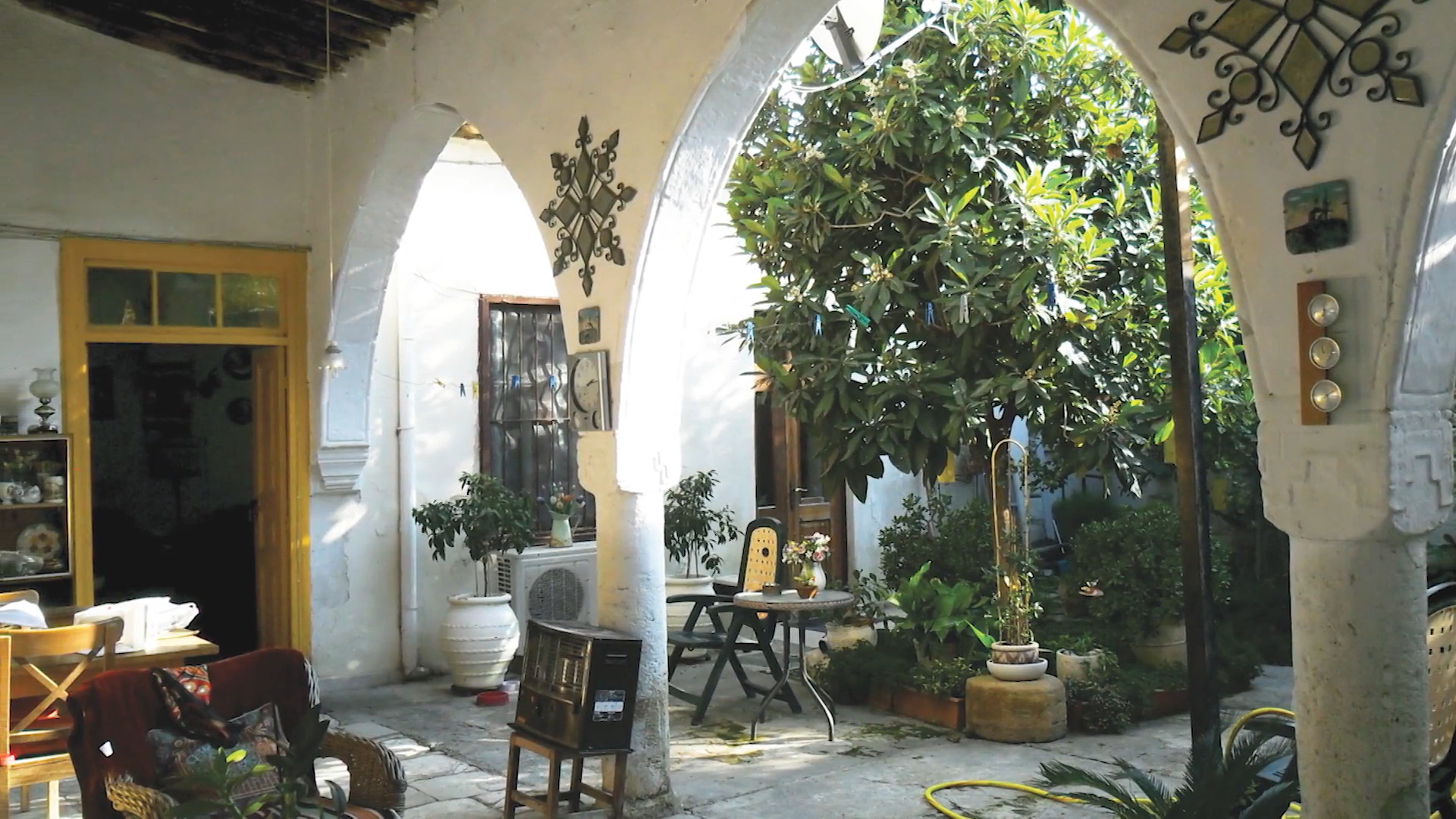Objectes multimèdia amb l’etiqueta: Escola Politècnica Superior d'Edificació de Barcelona
Resultats de la cerca
Acte acadèmic de lliurament de diplomes, distincions i premis del curs acadèmic 2024-2025
Accés obert
15 d’oct. 2025
L'EPSEB celebra l'acte acadèmic de lliurament de diplomes a titulats i titulades del Màster universitari en Desenvolupament i Gestió d'Actius Immobiliaris (MUDGI) i del Màster universitari en Diagnosi i Tècniques d'Intervenció en l'Edificació (MUDIATEC) del curs 2024-2025.
Projecte Waste-Based Intelligent Solar-control devices for Envelope Refurbishment (WiSeR) - (Espanyol)
Accés obert
8 d’oct. 2025
El projecte WiSeR —Waste-based Intelligent Solar-control-devices for Envelope Refurbishment— desenvolupa façanes intel·ligents creades a partir de residus per millorar l’eficiència energètica dels edificis i reduir-ne l’impacte ambiental.
Aquest projecte del Departament de Tecnologia de l'Arquitectura, forma part de la convocatòria “Proyectos de Transición Ecológica y Transición Digital 2021” del Ministeri de Ciència i Innovació, amb el suport dels fons NextGenerationEU.
El sector de la construcció genera prop del 40% de les emissions de carboni i del consum energètic mundial. WiSeR proposa una nova manera de construir i rehabilitar edificis, reutilitzant més del 70% dels residus i aplicant principis d’economia circular i ecosuficiència.
El projecte combina tecnologia, disseny i participació ciutadana per desenvolupar elements de façana multifuncionals que controlen la llum i la temperatura, millorant el confort interior i contribuint a la neutralitat climàtica europea 2050.
Les noves solucions es validaran en edificis escolars, implicant infants i comunitats educatives en tallers i processos participatius per dissenyar els dispositius de control solar del futur.
WiSeR és un pas endavant cap a una arquitectura més intel·ligent, circular i sostenible.
Aquest projecte del Departament de Tecnologia de l'Arquitectura, forma part de la convocatòria “Proyectos de Transición Ecológica y Transición Digital 2021” del Ministeri de Ciència i Innovació, amb el suport dels fons NextGenerationEU.
El sector de la construcció genera prop del 40% de les emissions de carboni i del consum energètic mundial. WiSeR proposa una nova manera de construir i rehabilitar edificis, reutilitzant més del 70% dels residus i aplicant principis d’economia circular i ecosuficiència.
El projecte combina tecnologia, disseny i participació ciutadana per desenvolupar elements de façana multifuncionals que controlen la llum i la temperatura, millorant el confort interior i contribuint a la neutralitat climàtica europea 2050.
Les noves solucions es validaran en edificis escolars, implicant infants i comunitats educatives en tallers i processos participatius per dissenyar els dispositius de control solar del futur.
WiSeR és un pas endavant cap a una arquitectura més intel·ligent, circular i sostenible.
La calç segons els seus intèrprets: Joan Ramon Rosell. Part 1
Accés obert
7 d’oct. 2025
En aquest vídeo, el professor Joan Ramon Rosell, arquitecte tècnic, enginyer i doctor en restauració i patrimoni, ens apropa al fascinant món de la calç. Amb més de trenta anys d’experiència dirigint un laboratori de materials, ha centrat la seva recerca en la diagnosi i l’ús dels materials tradicionals. En aquesta intervenció comparteix el seu coneixement i experiència sobre què és la calç i com es produeix a partir de la pedra calcària, els diferents tipus de calç segons la puresa i composició de la pedra, el procés químic de cocció, apagat i carbonatació, així com les propietats i aplicacions en la construcció i restauració del patrimoni. També posa de relleu els beneficis ambientals d’aquest material, amb un cicle tancat i balanços de CO₂ positius, i convida a reflexionar sobre com la saviesa dels materials tradicionals ens pot ajudar a construir i restaurar amb més respecte pel medi ambient i pel nostre patrimoni cultural.
Projecte Waste-Based Intelligent Solar-control devices for Envelope Refurbishment (WiSeR) - Anglès
Accés obert
7 d’oct. 2025
The WiSeR project — Waste-based Intelligent Solar-control-devices for Envelope Refurbishment — develops intelligent façades made from waste materials to improve buildings’ energy efficiency and reduce their environmental impact.
This project is part of the “Proyectos de Transición Ecológica y Transición Digital 2021” call by the Ministry of Science and Innovation, supported by NextGenerationEU funds.
The construction sector accounts for around 40% of global carbon emissions and energy consumption. WiSeR proposes a new way of building and refurbishing structures by reusing more than 70% of waste materials and applying principles of circular economy and eco-efficiency.
The project combines technology, design, and citizen participation to develop multifunctional façade elements that control light and temperature, enhancing indoor comfort and contributing to Europe’s 2050 climate neutrality goals.
The new solutions will be tested in school buildings, engaging children and educational communities through workshops and participatory processes to design the solar-control devices of the future.
WiSeR represents a step forward towards a more intelligent, circular, and sustainable architecture.
This project is part of the “Proyectos de Transición Ecológica y Transición Digital 2021” call by the Ministry of Science and Innovation, supported by NextGenerationEU funds.
The construction sector accounts for around 40% of global carbon emissions and energy consumption. WiSeR proposes a new way of building and refurbishing structures by reusing more than 70% of waste materials and applying principles of circular economy and eco-efficiency.
The project combines technology, design, and citizen participation to develop multifunctional façade elements that control light and temperature, enhancing indoor comfort and contributing to Europe’s 2050 climate neutrality goals.
The new solutions will be tested in school buildings, engaging children and educational communities through workshops and participatory processes to design the solar-control devices of the future.
WiSeR represents a step forward towards a more intelligent, circular, and sustainable architecture.
Projecte Waste-Based Intelligent Solar-control devices for Envelope Refurbishment (WiSeR)
Accés obert
7 d’oct. 2025
El projecte WiSeR —Waste-based Intelligent Solar-control-devices for Envelope Refurbishment— desenvolupa façanes intel·ligents creades a partir de residus per millorar l’eficiència energètica dels edificis i reduir-ne l’impacte ambiental.
Aquest projecte del Departament de Tecnologia de l'Arquitectura, forma part de la convocatòria “Proyectos de Transición Ecológica y Transición Digital 2021” del Ministeri de Ciència i Innovació, amb el suport dels fons NextGenerationEU.
El sector de la construcció genera prop del 40% de les emissions de carboni i del consum energètic mundial. WiSeR proposa una nova manera de construir i rehabilitar edificis, reutilitzant més del 70% dels residus i aplicant principis d’economia circular i ecosuficiència.
El projecte combina tecnologia, disseny i participació ciutadana per desenvolupar elements de façana multifuncionals que controlen la llum i la temperatura, millorant el confort interior i contribuint a la neutralitat climàtica europea 2050.
Les noves solucions es validaran en edificis escolars, implicant infants i comunitats educatives en tallers i processos participatius per dissenyar els dispositius de control solar del futur.
WiSeR és un pas endavant cap a una arquitectura més intel·ligent, circular i sostenible.
Aquest projecte del Departament de Tecnologia de l'Arquitectura, forma part de la convocatòria “Proyectos de Transición Ecológica y Transición Digital 2021” del Ministeri de Ciència i Innovació, amb el suport dels fons NextGenerationEU.
El sector de la construcció genera prop del 40% de les emissions de carboni i del consum energètic mundial. WiSeR proposa una nova manera de construir i rehabilitar edificis, reutilitzant més del 70% dels residus i aplicant principis d’economia circular i ecosuficiència.
El projecte combina tecnologia, disseny i participació ciutadana per desenvolupar elements de façana multifuncionals que controlen la llum i la temperatura, millorant el confort interior i contribuint a la neutralitat climàtica europea 2050.
Les noves solucions es validaran en edificis escolars, implicant infants i comunitats educatives en tallers i processos participatius per dissenyar els dispositius de control solar del futur.
WiSeR és un pas endavant cap a una arquitectura més intel·ligent, circular i sostenible.
Acte acadèmic de lliurament de diplomes, distincions i premis del curs acadèmic 2023-2024
Accés obert
4 de nov. 2024
L'EPSEB celebra l'acte acadèmic de lliurament de diplomes a titulats i titulades de grau durant el curs 2023-2024 i a l'estudiantat de màster, que va iniciar els seus estudis el curs 2023-2024.
La construcció de l’Hotel Internacional a l’Exposició Universal de Barcelona de 1888
Accés obert
14 de nov. 2023
En motiu de la commemoració de l'Any Domènech i Montaner, un grup d'estudiantat i professorat de l'EPSEB, sota la coordinació del professor Jaume Rosell, ha realitzat un estudi sobre la construcció de l’Hotel Internacional a l’Exposició Universal de Barcelona de 1888.
Acte acadèmic de lliurament de diplomes, distincions i premis del curs acadèmic 2022-2023
Accés obert
25 d’oct. 2023
L'EPSEB celebra l'acte acadèmic de lliurament de diplomes a titulats i titulades de grau durant el curs 2022-2023 i a l'estudiantat de màster, que va iniciar els seus estudis el curs 2022-2023.
Tema 4. Esfuerzo axil. Grup matí
Accés obert
13 de juny 2023
Tema 4 de l'assignatura Introducció a les estructures. Grup matí.
Acte acadèmic de lliurament de diplomes i premis del curs acadèmic 2021-2022
Accés obert
16 de nov. 2022
L'EPSEB celebra l'acte acadèmic de lliurament de diplomes a titulats i titulades de grau durant el curs 2021-2022 i a l'estudiantat de màster, que va iniciar els seus estudis el curs 2021-2022.
Smart Rehabilitation 3.0 Project: Conservation and environmental sustainability of vernacular architecture
Accés obert
3 de març 2022
English subtitles.
This online course (MOOC) is part of a wider effort to bridge the knowledge gap between the offer of higher education in most European universities and the practical skills and competencies needed in the rehabilitation sector. Actually, it is one out of 4 training courses developed in the ErasmusPlus SMART Rehabilitation 3.0 Project. The course offered by the University of Cyprus provides an introduction to the environmental features and strategies of vernacular architecture encountered in both urban and building scales. Particularly, this course highlights vernacular heritage significance, incorporated lessons regarding sustainability, threats related to physical degradation and lack of maintenance, as well as international regulatory framework regarding vernacular dwellings. Also, the course presents the methodology approach and good practices for environmental friendly conservation, enhancing the passive performance of vernacular buildings and the integration of passive and active systems.
This online course (MOOC) is part of a wider effort to bridge the knowledge gap between the offer of higher education in most European universities and the practical skills and competencies needed in the rehabilitation sector. Actually, it is one out of 4 training courses developed in the ErasmusPlus SMART Rehabilitation 3.0 Project. The course offered by the University of Cyprus provides an introduction to the environmental features and strategies of vernacular architecture encountered in both urban and building scales. Particularly, this course highlights vernacular heritage significance, incorporated lessons regarding sustainability, threats related to physical degradation and lack of maintenance, as well as international regulatory framework regarding vernacular dwellings. Also, the course presents the methodology approach and good practices for environmental friendly conservation, enhancing the passive performance of vernacular buildings and the integration of passive and active systems.
Smart Rehabilitation 3.0 Project: Conservation and environmental sustainability of vernacular architecture
Accés obert
3 de març 2022
This online course (MOOC) is part of a wider effort to bridge the knowledge gap between the offer of higher education in most European universities and the practical skills and competencies needed in the rehabilitation sector. Actually, it is one out of 4 training courses developed in the ErasmusPlus SMART Rehabilitation 3.0 Project. The course offered by the University of Cyprus provides an introduction to the environmental features and strategies of vernacular architecture encountered in both urban and building scales. Particularly, this course highlights vernacular heritage significance, incorporated lessons regarding sustainability, threats related to physical degradation and lack of maintenance, as well as international regulatory framework regarding vernacular dwellings. Also, the course presents the methodology approach and good practices for environmental friendly conservation, enhancing the passive performance of vernacular buildings and the integration of passive and active systems.


